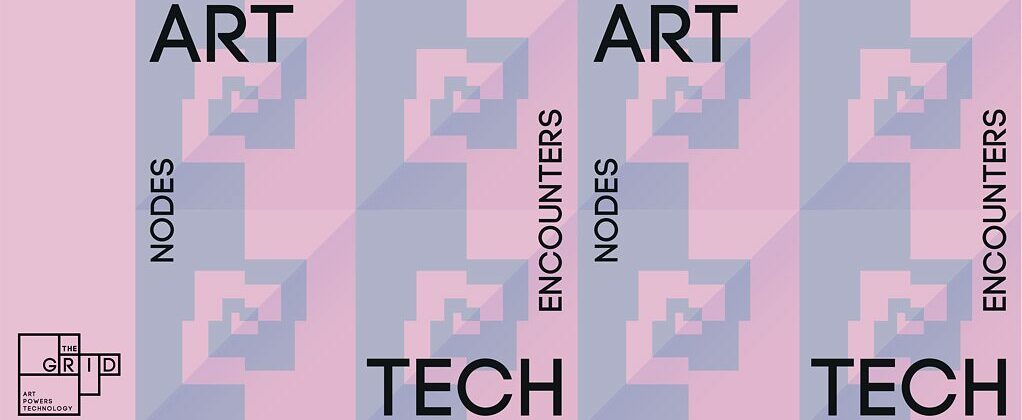
Join Us
What does AI say about our understandings of human creativity today?
We use the word creativity often, yet we rarely ask what it really means. In the context of AI, creativity has implied neural networks making random and aesthetically impressive art, to robots physically painting according to preprogrammed instructions. Historically, creativity has always had gendered and racialized assumptions — who is considered creative, what is considered creative output, and how creativity is assessed. In this panel, we’ll explore the intersection of creativity and AI to understand how AI is refashioning our understandings of creativity. As a technology built and created by humans, what does AI say about our understandings of human creativity today?
More Info
Join R. Buse Çetin, Prof. Luc Steels, Sarah Ciston and Emily Martinez for a discussion about the intersection of creativity and AI. Moderated by Xiaowei Wang and Bettina Wodianka.
The event is part of NODES. ART + TECH ENCOUNTERS, a series of talks that brings together artists, technologists and researchers from the U.S. and Europe. The event is part of THE GRID and organized by the Goethe-Institut San Francisco in collaboration with the Delegation of Flanders to the USA.
Panelists:
R. Buse Çetin is an AI researcher, consultant and creative. Her work revolves around ethics, impact, and governance of AI systems and it is grounded in intersectional feminism. Buse is the co-founder of the AI research, advocacy and art platform Dreaming Beyond AI. Buse’s work aims to demystify the intersectional impact of AI technologies through research, policy advocacy and art. Buse worked with AI policy think tank The Future Society as an AI policy researcher, and she is a member of the AI Commons – a knowledge hub for AI-driven problem-solving for the benefit of communities. Buse is the editorial lead of Civic Data Library of Context project of Civic Software Foundation and also works with IEEE SA’s AI-driven Innovation for Cities and People initiative.
Luc Steels studied linguistics at the University of Antwerp (Belgium) and computer science at the Massachusetts Institute of Technology (USA). His main research field is Artificial Intelligence covering a wide range of intelligent abilities, including vision, robotic behavior, conceptual representations and language. In 1983 he became a professor of computer science at the University of Brussels (VUB). He has been co-founder and chairman (from 1990 until 1995) of the VUB Computer Science Department (Faculty of Sciences). He founded the Sony Computer Science Laboratory in Paris in 1996 and became its first director. Currently he is ICREA research professor at the Institute for Evolutionary Biology (CSIC,UPF). Steels has participated in dozens of large-scale European projects and more than 30 PhD theses have been granted under his direction. He has produced over 200 articles and edited 15 books directly related to his research. During the past decade he has focused on theories for the origins and evolution of language using computer simulations and robotic experiments to discover and test them.
Sarah Ciston (she/they) is a Mellon Fellow and PhD Candidate in Media Arts and Practice at USC and a Virtual Fellow at the Humboldt Institute for Internet and Society in Berlin, researching how to bring intersectional theories, ethics, and tactics to artificial intelligence. They also lead Creative Code Collective, a community for co-learning programming using scrappy, approachable, interdisciplinary techniques.
Emily Martinez (she/they) is a 1st generation Cuban immigrant/refugee, raised in Miami and living in Los Angeles since 2012. She is a new media artist and serial collaborator who believes in the tactical misuse of technology. Her most recent works explore new economies and queer technologies. Long-term projects explore archetypal roles, collective trauma, and post-apocalyptic narratives. When Emily is not making art, they are learning to love and doing their energy work. Emily’s art and research has been published in Art in America, Media-N, Leonardo Journal (MIT Press), Temporary Art Review, and Filmmaker Magazine. Their work has been exhibited in over 60+ venues internationally, including Drugo More (Rijeka, Croatia), Transmediale (Berlin, DE), Yerba Buena Center for the Arts (San Francisco), MoMA PS1 (New York), V2_Lab for the Unstable Media (Rotterdam, NL), The Luminary (St. Louis), The Institute of Network Cultures (Amsterdam, NL), The Wrong Biennale, and Telematic (San Francisco).
Moderator:
Xiaowei Wang is an artist, coder and a writer. The creative director at Logic magazine, their work encompasses community-based projects on technology, ecology, and education. Their projects have been finalists for the Index Design Awards and featured by the New York Times, the BBC, CNN, VICE, and elsewhere.


